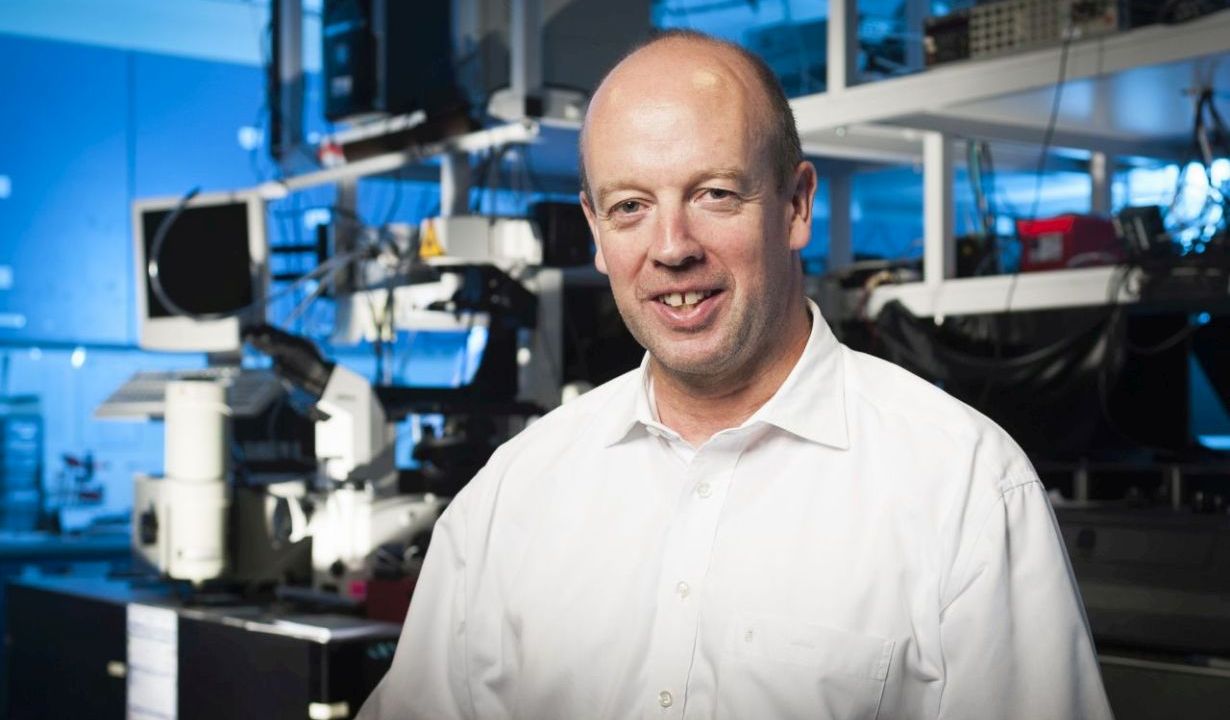The European Research Council (ERC) awards optoelectronics engineer Uli Lemmer from Karlsruhe Institute of Technology (KIT) with an Advanced Grant. The ORTHOGONAL project aims to develop and test a cost-effective and scalable process for the production of thermoelectric generators (TEGs). TEGs convert ambient heat directly into electrical energy and offer multiple potentials for recovering unused waste heat. Similarly, sensors for the Internet of Things (IoT) and wearable electronic devices (wearables) can be sustainably supplied with energy. The ERC is funding the project with 2.4 million euros over the next five years.
“For many years, Uli Lemmer has been driving new technologies for a sustainable and resource-conserving society,” says KIT Vice President Research Professor Oliver Kraft. “His projects in printed electronics combine first-class materials research with new concepts for electronic components. I am very pleased that the ERC has awarded him an Advanced Grant for his excellent research.
Thermoelectric Generators from the Printing Machine
With the project “Origami inspired thermoelectric generators by printing and folding,” or ORTHOGONAL for short, Professor Uli Lemmer, head of KIT’s Light Technology Institute (LTI) focuses on a new process for manufacturing of TEGs. These can convert the waste heat from industrial processes, power plants, heating systems, or geothermal energy directly into electrical energy. “TEGs are an effective lever to increase the energy efficiency while powering the billions of sensors used in our digitized economy and society,” Lemmer explains. Until now, TEGs can only be produced from individual parts in time-consuming manufacturing processes. To make them scalable for applications ranging from micrometers to square meters, Lemmer and his research team are taking advantage of printing technologies.
Inspired by the Japanese Art of Folding Paper
In the ORTHOGONAL project, they want to research inorganic nanocomposite materials with high efficiency and make them usable for printed electronics. In the first step, the powdered nanoparticles are processed into printable inks that are applied to ultrathin substrates, fused, and cured using photonic sintering, i.e. pulsed light. In the second step, the resulting 2D film is folded into the desired 3D geometry, as in origami.
Tailor-made TEGs for Individual Applications
“The new process not only makes production cost-effective and scalable. It also enables the production of a new generation of customized TEGs that adapt to the respective applications as individual components,” says Lemmer. These range from use in wearables such as fitness wristbands to smart industrial sensors and heating valves to heat exchangers. By the end of the five-year ERC grant, Lemmer aims to have developed two demonstrators: One for small-area use in an energy-autonomous sensor node, and another for large-area use in a heat exchanger. The 58-year-old expert can build on more than thirty years of experience with solid-state semiconductor devices, several patents, and a proof of concept for the thermoelectric materials and device design.
ERC Advanced Grants 2022
With the ERC Advanced Grants, the European Research Council (ERC) funds established top researchers with an outstanding scientific record who want to open up new research areas. The scientific work from the last ten years before the application is decisive for the evaluation. 1647 researchers took part in the 2022 call for proposals. The ERC awarded Advanced Grants for a total of 218 outstanding research projects in 20 countries with a total funding volume of 544 million euros, 37 of which went to German universities and research institutions. The success rate is 13.2 percent.
Read more:
https://erc.europa.eu/news-events/news/erc-2022-advanced-grants-results
More about KIT Materials Center
Being “The Research University in the Helmholtz Association”, KIT creates and imparts knowledge for the society and the environment. It is the objective to make significant contributions to the global challenges in the fields of energy, mobility, and information. For this, about 10,000 employees cooperate in a broad range of disciplines in natural sciences, engineering sciences, economics, and the humanities and social sciences. KIT prepares its 22,800 students for responsible tasks in society, industry, and science by offering research-based study programs. Innovation efforts at KIT build a bridge between important scientific findings and their application for the benefit of society, economic prosperity, and the preservation of our natural basis of life. KIT is one of the German universities of excellence.

